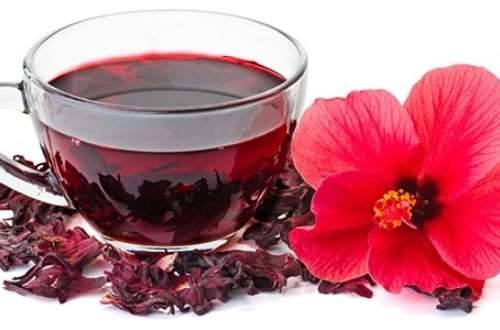Hibiscus tea is an herbal tea that’s made by steeping parts of the hibiscus plant in boiling water. Ghana is gifted with the abundance of the Hibiscus Sabdarrifa plant and it is time we tap the full potential of this plant. One of the most impressive and well-known benefits of hibiscus tea is that it may lower blood pressure.
Seban et al. (2015) review of five studies found that hibiscus tea decreased both systolic and diastolic blood pressure by an average of 7.58 mmHg and 3.53 mmHg, respectively. Another meta-analysis by Corina et al (2015)found that drinking hibiscus tea significantly lowered both systolic and diastolic blood pressure.
Besides this, several studies have found that hibiscus tea may lower both systolic and diastolic blood pressure. In one retrospective study by Mckay et al. (2009) 65 people with high blood pressure were given hibiscus tea or a placebo. After six weeks, those who drank hibiscus tea had a significant decrease in systolic blood pressure, compared to the placebo
A similar study by Mozaffari-Khosravi et al.(2013) demonstrates that the therapeutic effectiveness of Hibiscus Tea and Green Tea drinking by the end of the intervention was 43.5% in the hibiscus Tea group and 39.6% in the Green Tea group.
Another study in Nigeria by Nwachukwu et al. (2015) discovered hibiscus tea to be more effective than hydrochlorothiazide, a common blood-pressure lowering medication, at decreasing blood pressure. The most significant finding was that hibiscus tea, unlike its study counterpart, hydrochlorothiazide, did not cause electrolyte imbalance. The study had this to say: “Hibiscus Tea(Natural medicine drug) was a more effective antihypertensive agent than HCTZ(conventional medicine drug) in mild to moderate hypertensive Nigerians and did not cause electrolyte imbalance.
One earlier study by Herrera-Arellano et al. (2004) studied head to head with one of the most common pharmaceutical interventions for the treatment of hypertension, Captopril, an ACE inhibitor. In this study, individuals were either given daily hibiscus tea or 25 mg of Captopril twice per day. The result showed that the hibiscus tea and the Captopril had no significant difference in hypotensive effects, meaning that both the standard pharmaceutical drug and the hibiscus tea worked equally well in lowering the participants’ blood pressure.
Another study conducted by Soleimani et al. (2015) also evaluate the effect of sour tea pills containing the herb’s extract versus captopril on the treatment of hypertension. The authors had this to say: “According to the effect of sour tea pill on decreasing blood pressure, without giving priority over captopril, sour tea pill containing the herb’s extract can be prescribed as an adjuvant therapy for lowering the prescribed dosage of captopril”. No side effect was observed in the sour tea pill group in the study.
In a more recent retrospective study by Jalalyazdi et al.(2019), where the case group received two standard cups of sour tea every morning for 1 month. They found that using H. sabdariffa as sour tea two times a day can be effective in managing blood pressure in stage one hypertension along with lifestyle and dietary modification. An observational study in Ghana suggests daily consumption of hibiscus tea, lowers blood pressure level and may prove an effective component in cardiovascular health management (Obu, 2020).




No comments yet
Be the first to share your thoughts!